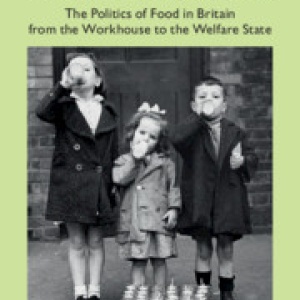
This book explores the history of government food programmes in Britain over the past two centuries, including workhouses, school meals and the post-war welfare state. The book discusses how these programmes treated people differently, e.g. because of gender or race.
Publisher’s summary
This compelling study explores food programmes initiated by the British government across two centuries, from the workhouses of the 1830s to the post-war Welfare State. Challenging the assumption that state ideologies and practices were progressive and based primarily on scientific advances in nutrition, Nadja Durbach examines the political, economic, social and cultural circumstances that led the state to feed some of its subjects, but not others. Durbach follows food policies from their conception to their implementation through case studies involving paupers, prisoners, famine victims, POWs, schoolchildren, wartime civilians and pregnant women. She explores what government food meant to those who devised, executed, used, and sometimes refused, these social services. Many Mouths seeks to understand the social, economic, and political theories that influenced these feeding schemes, within their changing historical contexts. It thus offers fresh insights into how both the administrators and the intended recipients of government food programs realized, interpreted, and made meaning out of these exchanges, and the complex relationship between the body, the state and the citizen.
Reference
Durbach, N. (2020). Many Mouths: The Politics of Food in Britain from the Workhouse to the Welfare State. Cambridge University Press, Cambridge.
Read more here. See also the Foodsource building block What is malnutrition?







Post a new comment »